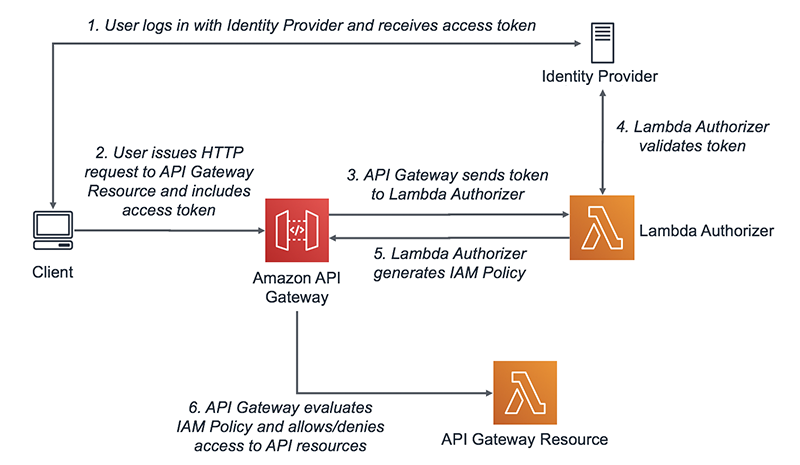AWS Compute Blog
Category: AWS Serverless Application Model
Troubleshooting Amazon API Gateway with enhanced observability variables
Amazon API Gateway is often used for managing access to serverless applications. Additionally, it can help developers reduce code and increase security with features like AWS WAF integration and authorizers at the API level. Because more is handled by API Gateway, developers tell us they would like to see more data points on the individual […]
Building a serverless document scanner using Amazon Textract and AWS Amplify
This guide demonstrates creating and deploying a production ready document scanning application. It allows users to manage projects, upload images, and generate a PDF from detected text. The sample can be used as a template for building expense tracking applications, handling forms and legal documents, or for digitizing books and notes. The frontend application is […]
Jump-starting your serverless development environment
Developers building serverless applications often wonder how they can jump-start their local development environment. This blog post provides a broad guide for those developers wanting to set up a development environment for building serverless applications. AWS and open source tools for a serverless development environment . To use AWS Lambda and other AWS services, create […]
Using serverless backends to iterate quickly on web apps – part 3
Previously in this series, you deploy a simple workflow for processing image uploads in the Happy Path web application. In this post, you add progressively more complex functionality by deploying new versions of workflows.
Building storage-first serverless applications with HTTP APIs service integrations
Over the last year, I have been talking about “storage first” serverless patterns. With these patterns, data is stored persistently before any business logic is applied. The advantage of this pattern is increased application resiliency. By persisting the data before processing, the original data is still available, if or when errors occur. Common pattern for […]
Using serverless backends to iterate quickly on web apps – part 2
This post focuses on the business logic layer of the Happy Path application. I introduce Step Functions and show how you can use Amazon States Languages (ASL) to define state machines.
Using Amazon MSK as an event source for AWS Lambda
Now Lambda supports Amazon MSK as an event source, you can invoke Lambda functions from messages in Kafka topics to integrate into your downstream serverless workflows.
ICYMI: Season one of Sessions with SAM
February 12, 2024: Amazon Kinesis Data Firehose has been renamed to Amazon Data Firehose. Read the AWS What’s New post to learn more. Developers tell us they want to know how to easily build and manage their serverless applications. In 2017 AWS announced AWS Serverless Application Model (SAM) to help with just that. To help […]
Building a Pulse Oximetry tracker using AWS Amplify and AWS serverless
This guide demonstrates an example solution for collecting, tracking, and sharing pulse oximetry data for multiple users. It’s built using AWS serverless technologies, enabling reliable scalability and security. The frontend application is written in VueJS and uses the Amplify Framework. It takes oxygen saturation measurements as manual input or a BerryMed pulse oximeter connected to […]
Building well-architected serverless applications: Controlling serverless API access – part 1
This series of blog posts uses the AWS Well-Architected Tool with the Serverless Lens to help customers build and operate applications using best practices. In each post, I address the nine serverless-specific questions identified by the Serverless Lens along with the recommended best practices. See the Introduction post for a table of contents and explanation of the example application. Security question […]









